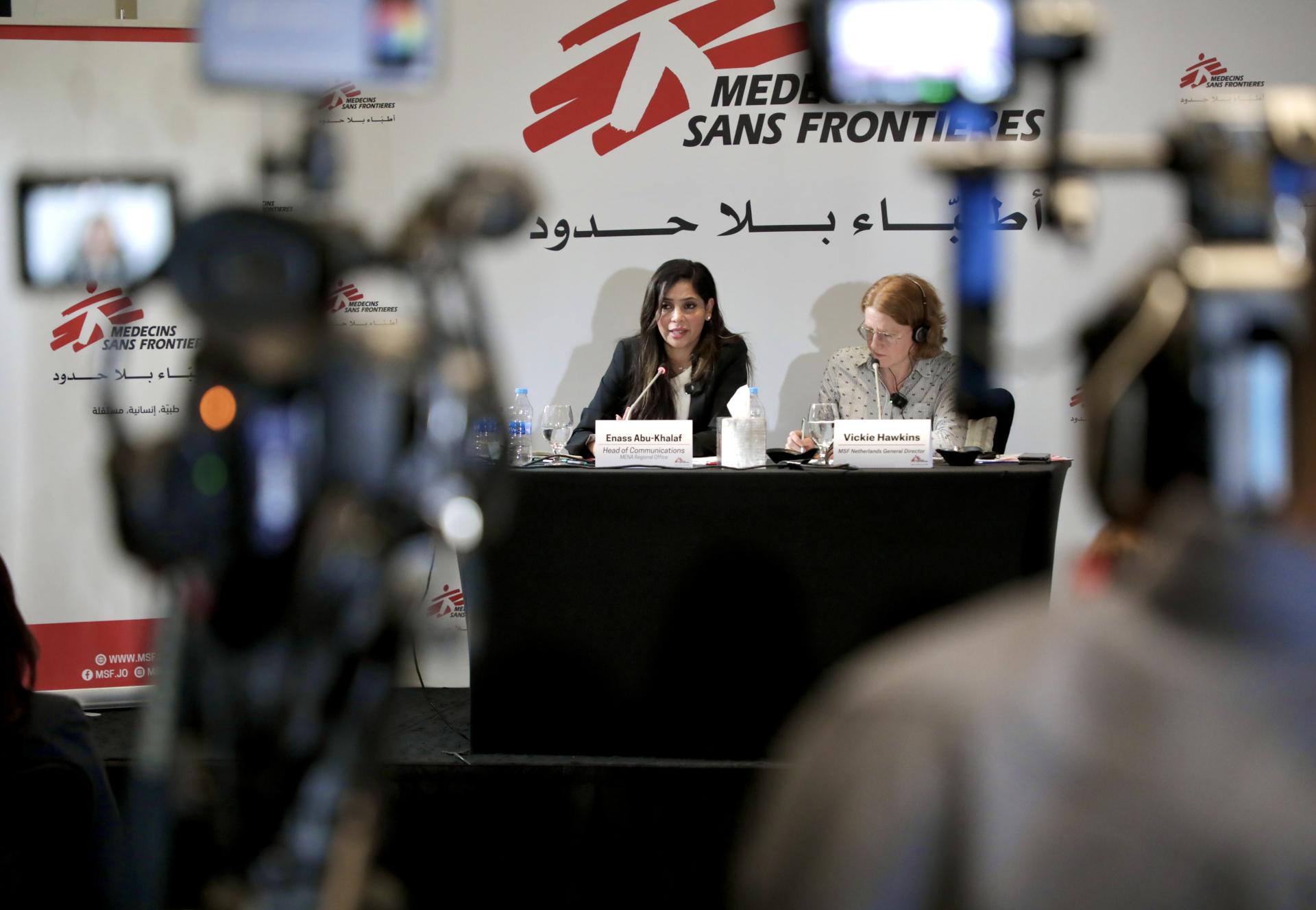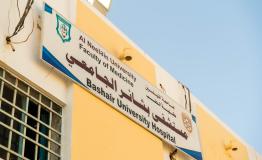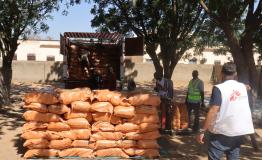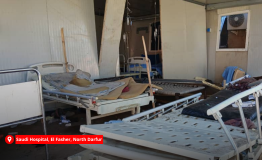Amsterdam, 22 July 2024 - The war in Sudan has led to a collapse in the protection of civilians with communities facing indiscriminate violence, killings, torture and sexual violence amid persistent attacks on health workers and medical facilities according to a report released by Médecins Sans Frontières / Doctors Without Borders (MSF) today.
The report, ‘A war on people – The human cost of conflict and violence in Sudan’ describes how both the Sudanese Armed Forces (SAF) and the Rapid Support Forces (RSF) and their supporters are inflicting horrendous violence on people across the country. The war has wrought a catastrophic toll since fighting began in April 2023 with hospitals attacked, markets bombed, and houses razed to the ground.
Estimates for the total number of people injured or killed during the war vary but MSF, which works in eight states across Sudan, revealed that in just one of the hospitals it supports, Al Nao hospital in Omdurman, Khartoum state, 6,776 patients were treated for injuries caused by violence between 15 August 2023 and 30 April 2024, an average of 26 people per day. MSF has treated thousands of patients for conflict related injuries across the country, most for injuries caused by explosions, gunshots and stabbings.
A healthcare worker in Al Nao hospital describes the aftermath of shelling in a residential area of the city.
“About 20 people arrived and died straight after, some arrived already dead. Most of them came with already hanging hands or legs, already amputated. Some only with a small part of skin keeping two limbs together. One patient came with an amputated leg, their caregiver followed behind, carrying their missing limb in their hand.”
The report contains shocking reports of sexual and gender-based violence, especially in Darfur. An MSF survey of 135 survivors of sexual violence treated by MSF teams between July and December 2023 in refugee camps in Chad close to the Sudanese border found 90% were abused by an armed perpetrator, 50% were abused in their own homes and 40% were raped by multiple attackers.
These findings are consistent with testimonies from survivors still in Sudan, demonstrating how sexual violence is being perpetrated against women in their homes and along displacement routes, a characteristic feature of the conflict.
An MSF patient, describes events in Gedaref in March 2024. “Two young girls from Sariba, our neighborhood disappeared. Later when my brother was abducted and when he came back home, he said that the two girls were in the same house where he was detained and that the girls had been there for two months. He said that he was hearing bad things done to them, the kind of bad things they do to girls.”
The report contains testimonies detailing targeted ethnic violence against people in Darfur. In Nyala, South Darfur, people described how, in summer 2023, RSF and aligned militia went house to house, looting, beating, and killing people, targeting Masalit and other people of non-Arab ethnicities.
A patient in Nyala, South Darfur, told MSF “The men were armed with guns and dressed in RSF camouflage… I was stabbed many times and fell to the ground. As they exited my house they looked at me laying on the ground, I was barely conscious. I could hear them say ‘he will die, don’t waste your bullets’ as one of them pressed his foot on me.”
Throughout the war hospitals have been routinely looted and attacked. In June the World Health Organization said that in hard to reach areas only 20 to 30 per cent of health facilities remain functional, and even then at minimal levels. MSF has itself documented at least 60 incidents of violence and attacks on MSF staff, assets and infrastructure. The MSF supported Al Nao hospital in Omdurman has been shelled on three separate occasions, while a blast caused by an airstrike in May killed two children after the ICU roof collapsed at the MSF supported Baker Nahar Paediatric hospital in El Fasher. The hospital was forced to close.
Despite the health system struggling to adequately meet the population’s needs, humanitarian and medical organisations have frequently been blocked from providing support. Although authorities have begun issuing visas for humanitarian staff more readily, attempts to provide essential medical care are still regularly impeded through bureaucratic blockages such as refusals to issue travel permits to allow the passage of people and essential supplies.
Vickie Hawkins, MSF General Director, said: “The violence of the warring parties is compounded by obstructions: by blocking, interfering and choking services when people need them most, stamps and signatures can be just as deadly as bullets and bombs in Sudan.”
“We call on all warring parties to facilitate the scale up of humanitarian aid and, above all, to stop this senseless war on people by immediately ceasing attacks on civilians, civilian infrastructure and residential areas.”



